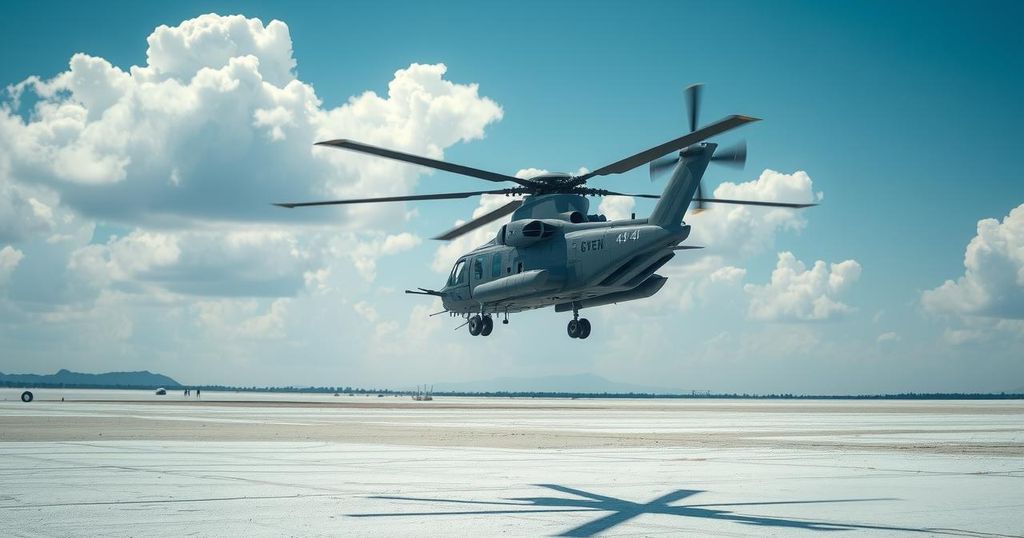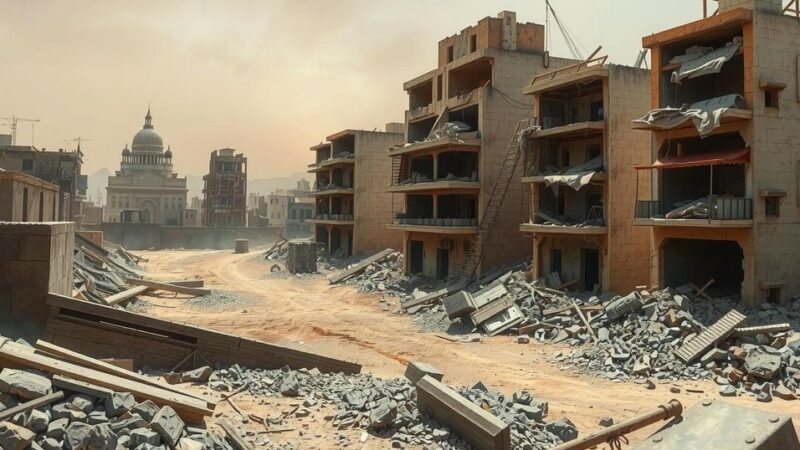A U.N. helicopter was attacked in South Sudan, resulting in deaths of a general and soldiers, threatening peace efforts. The U.N. condemned the incident as possibly a war crime, urging investigations. Tensions rise significantly between government factions, risking renewed conflict post-civil war.
On Friday, a United Nations helicopter was attacked while attempting to evacuate a South Sudanese general and numerous soldiers from Nasir, resulting in significant casualties. The South Sudanese government reported that the aerial assault led to the deaths of General Majur Dak and approximately 27 soldiers, as well as a U.N. crew member. The U.N. termed the incident as “utterly abhorrent,” suggesting it may be classified as a war crime, thereby threatening the fragile peace process in the region.
The U.N. crew was airlifting troops amidst violent clashes in Nasir between national forces and the White Army militia, which the government associates with First Vice President Riek Machar’s loyalists. President Salva Kiir had received assurances from Machar that the general would be safe, prompting the mission to proceed with the evacuation. It remains unclear whether the helicopter was targeted in flight or while grounded.
Nicholas Haysom, leader of the U.N. Mission in South Sudan (UNMISS), expressed profound regret over the attack and emphasized the need for an investigation to identify and hold accountable those responsible. Meanwhile, Machar’s spokesperson deflected inquiries about the assault, despite reports suggesting the ongoing detention of several high-ranking officials associated with Machar, which jeopardizes the 2018 peace agreement.
The White Army, primarily composed of Nuer youths, had previously aligned with Machar’s forces during the civil strife from 2013 to 2018 against Kiir’s predominantly Dinka troops. Although President Kiir reaffirmed his commitment to peace, experts caution that increasing tensions could ignite a renewed conflict. The U.N. has called upon all factions to cease hostilities and for leaders to urgently seek diplomatic solutions to the escalating issues in Nasir and the surrounding areas.
Since the conclusion of the civil war in 2018, South Sudan has faced ongoing localized violence despite being officially at peace. The U.N. mission, initiated after South Sudan’s independence in 2011, comprises nearly 20,000 peacekeeping personnel from 73 different nations.
The attack on a U.N. helicopter in South Sudan has resulted in the deaths of a general, soldiers, and a U.N. crew member, jeopardizing the fragile peace process in the nation. The U.N. condemned the assault as possibly war crime, calling for accountability. As tensions escalate among rival factions, the potential for renewed conflict looms, despite official peace since 2018. Diplomatic interventions are urgently needed to stabilize the situation.
Original Source: news.az






